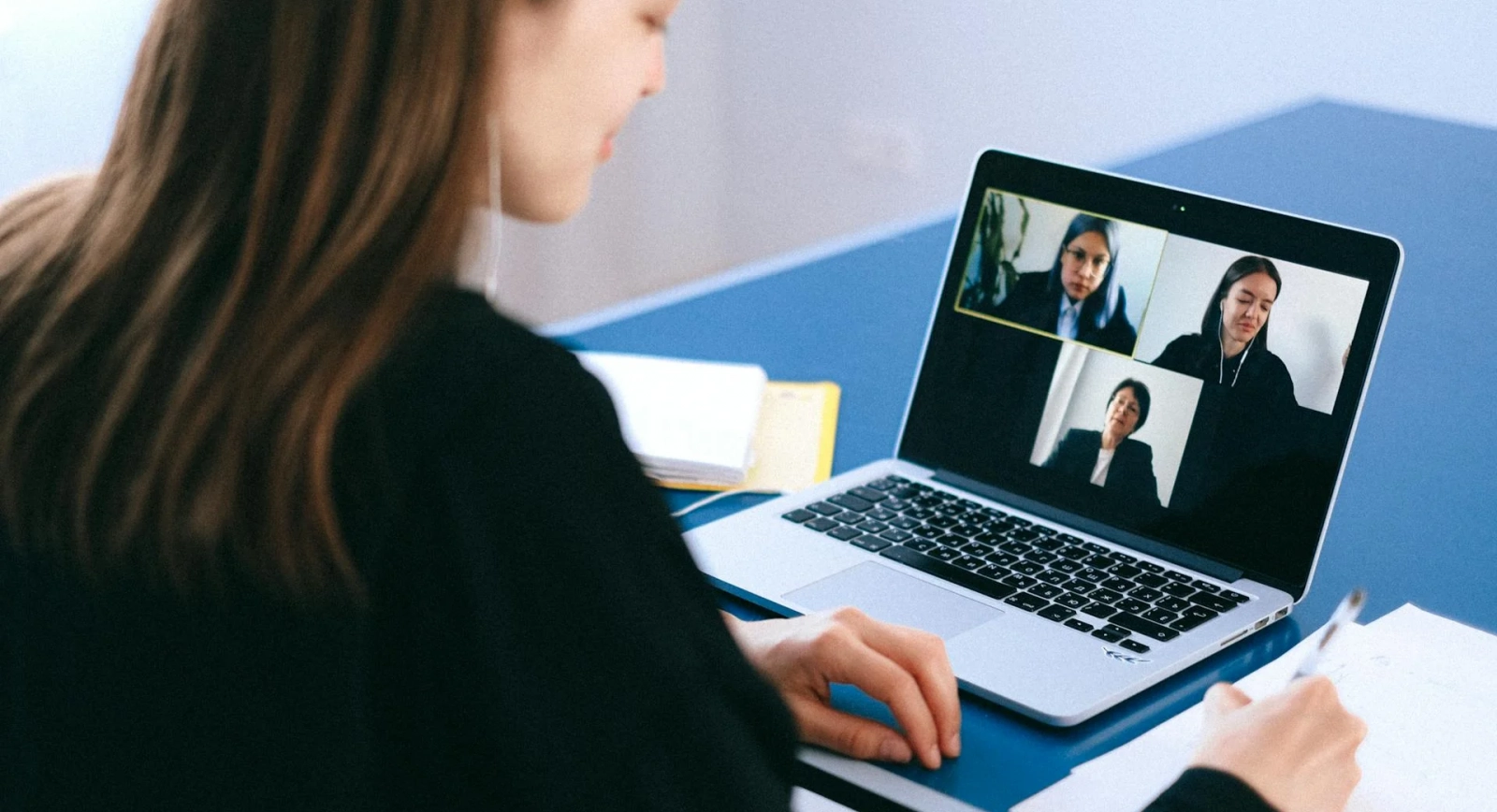Let’s be honest for a second. Even if we have nothing against job interviews, saying that we enjoy them is a long shot. No matter whether you’re interviewing for a blue- or white-collar role, you either simply dislike the mundane flow of the process or feel extremely anxious that you end up saying the wrong things and miss a great work opportunity.
How to prepare for a job interview properly? Below are a handful of tips and interview prep strategies that can help you make a great first impression and up the chances of getting the desired role.
The Psychology of Job Interviews – A Helpful Tool or Utter Uselessness?
Some recruiters argue that interviews are quintessential in spotting “good fits” and people who are trying to fake their way into a company or a role. In the book of the same name,
psychologist, Nicolas Roulin, argues that an interview can often be a poor predictor of future performance, especially if the interviewers are unprepared. On the other hand, he also states that according to research, if the interview is well-prepared, conducted, and evaluated, it can be an accurate predictor of future work performance.
However, the latter highly depends on the implementation of best practices such as asking the same questions from candidates, asking work-related queries, and properly evaluating the answers with standardised rating scales.
On the other end, he highlights that interviewees often have distorted views about interviews as well. On the one end, some treat it like a police interrogation, while others as a casual conversation. Roulin says that it’s vital to find the golden mean between these two extreme cases and recommends proper preparation as well.
Interview Prep 101: The Art of Preparing for an Interview
Let’s say that you’ve already perfected your CV, sent over your resume, and even attached a cover letter. You’ve passed the first round, and now you have an interview schedule with a recruiter or maybe the employer. How to get ready for an interview and maximise the potential of getting hired? These tips below can help.
1. Research The Company
In the digital era, there’s no excuse for not learning more about the company you’re applying to. From news to press releases, products, and services, learn as much as you can about the business. Go one step further and learn about the brand’s values and mission.
Knowing these details can be an advantage, especially if you reflect your knowledge about the company during the interview. You simply come across as someone who understands the business, which can be appealing to the interviewers. Additionally, understanding the context of the job can give you the opportunity to tailor your answers in a more relevant way to the company.
2. Understand The Job
Understanding your responsibilities, the possible challenges, and assessing the necessary skills you need is also an essential part of preparing for a job interview. To be more specific, go over the required daily tasks and responsibilities of the role and try to come up with examples from your past where you can highlight that you’re qualified. Give examples of similar challenges and solutions to back up why you would succeed in the role.
3. Practice Your Answers
It’s a given that you will be asked questions. From behavioral to situational questions, you’ll get queries like “Tell me about yourself”, “Why this job?”, “What are your weaknesses?”, “Where do you see yourself in 5 years?”, etc. The interviewer will also probably ask about your strengths and weaknesses and other common interview questions.
Research these potential questions and figure out how you’d like to answer them. Come up with complete answers and even rehearse them if needed. While this might feel a bit ridiculous, this strategy allows you to recall your answers more efficiently and exudes a more confident candidate.

Source: Pexels
4. Address Tough Questions Ahead of Time
Self-belief and resilience are key players in acing an interview, especially when the interviewer wants to know more about less pleasant topics such as past firings, employment gaps, or even salary expectations.
The best way to tackle these situations is to prepare for them as well instead of hoping that they won’t arise. Just as with the rest of the answers, practice these out loud over again until you are comfortable with them.
5. Don’t Forget About Appearances and Attitude
Having well-rehearsed answers is great but if you don’t couple it with the right amount of enthusiasm, you might not make the best first impression.
While you don’t have to wear anything flashy, dressing appropriately for the interview, in accordance with the company’s culture is a plus. Even if you overdo it a bit, it’s better to look overly professional than too casual.
Logistics can also make or break the interview. Having your timing down is essential. Arrive at least 15 to 10 minutes early to accommodate yourself, calm your nerves, and even use the restroom before heading in. While you may not have to deal with local transportation issues and traffic jams if you are doing the interview via video, checking your connection and video setup before the meeting is a great way to avoid last-minute surprises.
6. Come Up With Your Own Questions
Don’t just focus on showcasing your accomplishments. Because toward the end of the interview, the interviewer will likely ask you whether you have any questions, steer clear of trying to further impress the interviewer.
This is your time to get information about the role and the company. As such, think about the things that you really want to know as you will probably be in this role every day for the next few years.
For example, you can ask something along the lines of this: Can you describe a typical day in this position? How will my productivity be measured? What are the big challenges I may face?
It’s okay to write these down, this shows initiative, and enthusiasm.
7. Get Into The Right State of Mind
Professionalism is one thing, anxiety is another. Getting nervous might be inevitable, however, always remember that the recruiter and the employer already think you have the qualities for the job and they wouldn’t be interviewing if they’d think otherwise.
No one gives a perfect interview. As such, don’t strive for perfectionism, but be assertive when necessary, self-confident, and convey why you are the perfect person for the job.
Explain your expertise, ask about the work that needs to be done, and talk about how you’d tackle the challenges. Approach it as if you are a consultant who’s talking with a potential client. The more you think about the interview as a business meeting, the more relaxed you will be and the better you will do.
8. Follow Up
Feel free to send a thank you note or email after the interview. This shows your interest and that you appreciated the opportunity. If you want you can also use this to highlight your interest in working there and emphasize the skills and experiences that are relevant for the role.
Ways To Prepare for an Interview
Apart from these strategies, there are also a couple of other pieces of advice we’d like to share. These have more to do with how to act and behave during the interview, and less about what to prepare.
1. Listen
Listen carefully to the questions and make sure you understand them before giving an answer. Gather your thoughts and be as concise as possible. Ask for clarification if something’s unclear.
2. Be Authentic and Enthusiastic
Show that you are interested in the company and the job. Demonstrate commitment to make a positive impression, but try to remain yourself. Authenticity can help you differentiate yourself from the rest of the candidates and assists the interviewer assess if you are a good company fit.
3. Be Professional in Every Sense
In addition to looking the part, you should also behave the part. Follow professional etiquette while on the interview. Greetings, handshakes, maintaining eye contact and avoiding interrupting the interviewer are essential in making a great first impression.
Also, don’t brag, but make a case for your accomplishments and successes in your previous roles during the interview. Make a case for them and explain how they would benefit the company.
Lastly, try and maintain good posture by sitting up straight with shoulders back. This can help convey professionalism and self-confidence.

Source: Pexels
4. Research the Interviewer and Be Prepared to Address Tough Questions
If you can, research the interviewer beforehand and learn about their interests and background. This may give you the opportunity to build rapport with them and finding common ground early in the interview.
Also prepare for inconvenient questions, such as queries regarding your weaknesses and skill or experience gaps. Be honest, try to be constructive and tell how you are working to improve, learn, and grow.
Behavioral questions will also likely be on the menu. These ask to provide specific examples of how you handled particular situations in your previous roles. You can use the STAR method to structure your answers.
5. Be Grateful
Express your appreciation for the opportunity to demonstrate your professionalism and positive attitude. As mentioned, you can also follow up with a thank-you email to thank them once more for the consideration.
Best Ways To Prepare for an Interview: Be Yourself
At the end of the day, blue-collar interviews are less about mind games and more about hands-on experience. You don’t necessarily have to follow everything on this list to get the role you want, especially if you have a meticulous work record and a professional attitude toward your job, with reliability and responsibility taking centre stage.
That said, if you are still looking for your next role, feel free to visit our open vacancies across the Netherlands, Belgium and Germany. Our team is here to help you not just with acing the interview, but finding accommodation and taking your first steps in your new life.

 English
English  Lietuvių
Lietuvių  Latviešu
Latviešu  Polski
Polski  Português
Português  Română
Română  Slovenčina
Slovenčina  Magyar
Magyar  Русский
Русский  Espanol
Espanol  България
България  Čeština
Čeština  Italy
Italy  Croatia
Croatia  Greek
Greek 

